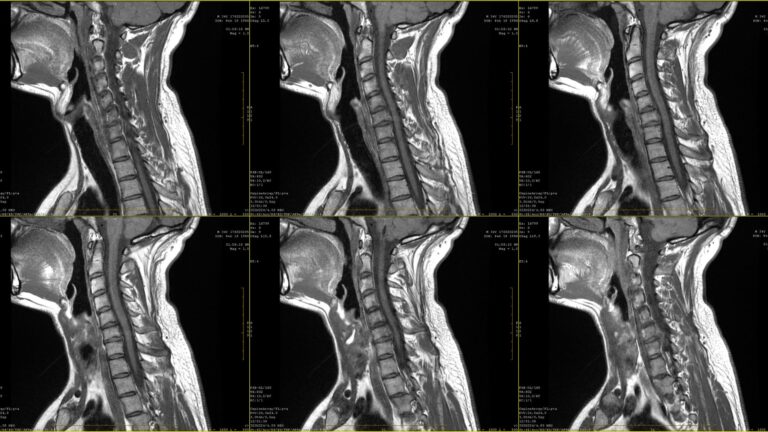When we think of maintaining good health, most of us think of eating a balanced diet, getting enough exercise, and maybe taking vitamins or supplements to ensure our bodies get what they need to function. But there’s more to it than that.
Increasingly, science is recognizing the link between body and mind. The American Psychological Association notes that a sudden increase in stress, particularly stress associated with anger, can trigger arrhythmias, heart attacks, and even sudden death. These devastating consequences can affect people who didn’t even know they had heart disease.
While intense short-term stress can have dangerous effects on your health, chronic long-term stress can also be extremely detrimental. Chronic stress — the kind that continues at a low level for weeks, months, or even years — can significantly change the way your body functions.
Stress management is just as important to your overall wellbeing as diet and exercise. Unfortunately, many people never learn how to properly handle stress. It’s important to understand the ramifications of poor stress management, and to learn what you can do to keep yourself well.
How Common is Poor Stress Management?
Health issues related to chronic stress are extremely common in the United States, and they’re becoming more widespread all the time. Each year since 2007, the American Psychological Association has conducted a study to evaluate the stress experienced by Americans. The results are broken down by gender, by age, by race, and by LGBT status.
According to the 2015 Stress in America Snapshot, more adults are reporting extreme stress levels. The survey indicates that an increasing number of people are feeling worried, anxious, or depressed on a regular basis because of various stressors.
Millennials, women, and LGBT individuals were the most likely to report increased stress. However, self-reported stress increased across the entire population of respondents. In the 2015 results, 24% of adults reported extreme levels of stress, compared to 18% in the year before.
What Happens When Stress is Managed Poorly?
According to Mayo Clinic, being confronted with a stressor triggers the brain to release a burst of hormones. These hormones increase heart rate and raise blood pressure. This evolutionary trait would have helped early humans escape from predators and keep themselves safe from physical danger. Today, this same stress reaction can have serious and long-term effects on our ability to function.
Stress can have mental, behavioral, and physical symptoms. The effects of stress that people are most familiar with are related to mood. Mood changes resulting from chronic low-level stress can include:
- Feelings of being overwhelmed
- Increased anxiety, especially generalized anxiety not connected with a specific event
- Feeling unmotivated or unfocused
- Sadness or depression
- Irritability, impatience, and being unusually quick to anger
- Feelings of restlessness
These changes in mood can be closely tied to changes in behavior. The following behaviors are associated with an increased level of stress:
- Abusing drugs or alcohol
- Starting or increasing use of tobacco
- Changes in eating habits, either undereating or overeating
- Withdrawing from friends and family, or avoiding social interaction in general
- Exercising less frequently
There are physical effects associated with long-term stress, too. Chronic stress that lasts over a long period of time can affect everything from the immune system to digestion to sleep cycles. Physical symptoms of chronic stress include:
- Muscle pain or tension, particularly in the neck and back
- Chest pain
- Stomach aches
- Feeling constantly fatigued, even just after waking up
- Changes in sex drive
- Persistent or recurring headaches
- Getting sick often, or being more prone to infections, as the result of a weakened immune system
- Insomnia or other changes in sleeping patterns
What are the Best Methods of Stress Management?
As a society, we rarely incorporate mental health into what we consider “healthy.” But in light of all the potential negative effects of stress, learning to cope with daily stressors in a healthy way is an important part of the conversation.
Stress comes from all kinds of different sources. We each have our own unique, individual situations that bring stress into our lives. While we can’t always change these circumstances, we can change our reactions so that the negative effects of stress are lessened.
To combat stress, it’s important to know what’s causing it. Sometimes, the cause might be obvious. You might be fighting with a family member or significant other. Being around that person would, understandably, cause you to feel stressed.
But other times, the cause might be less obvious. For example, you might find yourself getting headaches and frequently snapping at people around you while you’re at home. You might think those people are the reason for your stress, but then realize that the root of your stress is actually related to a looming deadline at work. Clearly identifying your main stressors can help you anticipate them and plan accordingly.
Just like there are many different causes of stress, there are also many different ways of dealing with it. Not all of these strategies will work for a particular individual. If you find yourself struggling with stress, it’s important to think about what helps you relax and unwind. What makes you happy? What makes you feel calm, or brings you joy?
Here are a few recommendations to help get you thinking:
- Watch a favorite show or movie
- Listen to music
- Practice breathing techniques
- Spend time with friends or family (although be careful that you know when specific people are the cause of your stress and not the solution)
- Take a break from all the screens: Put down your phone, tablet, or computer and step away for a while
- Play a sport, practice yoga, or otherwise get some physical activity
- Spend time in nature
- Journal, meditate, or practice other mindfulness techniques
These are strategies that you can incorporate throughout your daily life. It’s also a good idea to deliberately set aside time to focus on your mental wellbeing.
Learn to recognize the signs that you’re getting overwhelmed. Don’t hesitate to ask for help when you need it, from your support system or from a mental health professional.
Knowing what causes your stress and learning how to manage those stressors is a huge step. You’ll then be empowered to take better care of yourself in both body and mind.
Schedule an Appointment and Receive
FREE One-Hour Massage Certificate
That’s right! Receive a certificate for a free one-hour massage with our highly-trained and licensed massage therapists for use after your first appointment. Use it yourself, or give it to a friend.
[gravityform id=”8″ title=”false”]









